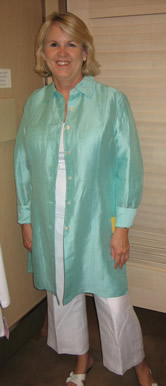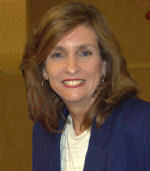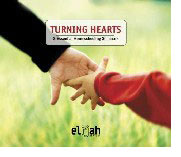Your Child's Emotional Bank Account, part 2, Making Deposits
If you missed past issues of the e-journal, you can read them HERE>>
by Ellyn Davis
Last week's e-journal explained the concept of "emotional bank accounts" in relationships.
Simply put, relationships are like bank accounts. Think of it this way: When your checking account is overdrawn, it is hard for you to give away money. Similarly, people have emotional bank accounts that must be sufficiently full for them to give back to you--not money, but time, personal responsibility, help, cooperation, and (in the case of children) good behavior.
If a relationship is wounded, we have probably made too many “withdrawals” and not enough “deposits” into that person’s account. Even with the people we love the most, our bank account is often seriously overdrawn. The only solution is to regularly make deposits while avoiding withdrawals. This takes courage and considerable self-discipline. After all, you may believe that their account with you is seriously overdrawn, and you may resent having to be the one to change. However, change must start somewhere, so it might as well start with you.
It might help you to think of these deposits as long-term investments.
Adding regular “deposits” into the emotional bank accounts of the people you love is smart investing in their future, so they will feel secure in “withdrawing” or giving back to you. But bear in mind, you probably will not see results immediately.
The Six Major Deposits to Emotional Bank Accounts
There are six major deposits we can make to another person’s emotional bank account:
1. Understanding the individual. An individual's values determine what actions will result in a deposit or a withdrawal for that individual. To build a relationship, you must learn what is important to the other person and make it as important to you as the other person is to you.
Also, each of us has a "love language" of certain actions and words that when others use them it makes us feel loved. Some people feel most loved when others spend quality time with them, some when they are given gifts, some like words of affirmation, some like for other people to show their love by doing things for them, and some people respond most to affectionate touch.
Love languages aren't rational, they are hard-wired into us, so no matter how ridiculous you think it is that the other person needs constant affirmation, that may actually be the primary action that he or she interprets as love. If your love language is gifts, you can give all the gifts you want, but your gifts won't be interpreted as acts of love by a person whose love language is words of affirmation.
So it is worth your while to discover the love language of each person you love so you can demonstrate love in a way that is meaningful to them.
Steven Covey explains it this way:
”Really seeking to understand another person is probably one of the most important deposits you can make, and it is the key to every other deposit. You simply don't know what constitutes a deposit to another person until you understand that individual. What might be a deposit for you - going for a walk to talk things over, going out for ice cream together, working on a common project - might not be perceived by someone else as a deposit at all. It might even be perceived as a withdrawal, if it doesn't touch the person's deep interests or needs.
One person's mission is another person's minutia. To make a deposit, what is important to another person must be as important to you as the other person is to you. You may be working on a high priority project when your six-year-old child interrupts with something that seems trivial to you, but it may be very important from the child's point of view. It takes discipline to recognize and recommit yourself to the value of that person and to subordinate your schedule to that human priority. By accepting the value of what the child has to say, you show an understanding of the child, and that makes a great deposit.
Our tendency is to project out of our own autobiographies what we think other people want or need. We project our intentions on the behavior of others. We interpret what constitutes a deposit based on our own needs and desires, either now or when we were at a similar age or stage in life. If they don't interpret our effort as a deposit, our tendency is to take it as a rejection of our well intentioned effort and to give up.”
2. Attend to the little things, which are the big things in relationships. The love and care we feel for another person is expressed in little things, small gestures, courtesies. It is important not to underestimate those. The little kindnesses and courtesies are so important. Small discourtesies, little unkindnesses, seemingly insignificant forms of disrespect make large withdrawals. In relationships, the little things are the big things.
3. Keep commitments. Breaking a promise is a major withdrawal. We need to be careful when we make commitments. Not to keep them is a major withdrawal from our emotional bank account. What are we really able and willing to commit ourselves to?
Children are especially sensitive to broken promises because they don’t really understand that “things come up” for adults that make it difficult for them to keep their promises. To them an excuse for breaking a promise for a cherished outing such as “the baby got sick,” just doesn’t compute, so when we break a promise to a child we have to make it right with him or her in any way possible.
Steven Covey explains:
”Keeping a commitment or a promise is a major deposit; breaking one is a major withdrawal. In fact, there's probably not a more massive withdrawal than to make a promise that's important to someone and then not to come through. The next time a promise is made, they won't believe it. People tend to build their hopes around promises, particularly promises about their basic livelihood.
I've tried to adopt a philosophy as a parent never to make a promise I don't keep. I therefore try to make them very carefully, very sparingly, and to be aware of as many variables and contingencies as possible so that something doesn't suddenly come up to keep me from fulfilling it."
Occasionally, despite all my effort, the unexpected does come up, creating a situation where it would be unwise or impossible to keep a promise I've made. But I value that promise. I either keep it anyway, or explain the situation thoroughly to the person involved and ask to be released from the promise.”
I believe that if you cultivate the habit of always keeping the promises you make, you build bridges of trust that span the gaps of understanding between you and your child. Then, when your child wants to do something you don't want him to do, and out of your maturity you can see consequences that the child cannot see, you can say, "Son, if you do this, I promise you that this will be the result." If that child has cultivated trust in your word, in your promises, he will act on your counsel."
3. Clarify expectations. The cause of almost all relationship difficulties is rooted in ambiguous, conflicting expectations around roles and goals. Taking the time and energy on the front end to clarify expectations saves time, effort and a major withdrawal later. Unclear expectations can undermine our communication and trust.
What are our expectations? Do we communicate them clearly to each other?
As Steven Covey says:
”Imagine the difficulty you might encounter if you and your boss had different assumptions regarding whose role it was to create your job description.
Unclear expectations in the areas of goals also undermine communication and trust."
The cause of almost all relationship difficulties is rooted in conflicting or ambiguous expectations around roles and goals. Whether we are dealing with the question of who does what at work, how you communicate with your daughter when you tell her to clean her room, or who feeds the fish and takes out the garbage, we can be certain that unclear expectations will lead to misunderstanding, disappointment, and withdrawals of trust."
Many expectations are implicit. They haven't been explicitly stated or announced, but people nevertheless bring them to a particular situation. In marriage, for example, a man and a woman have implicit expectations of each other in their marriage roles. Although these expectations have not been discussed, or sometimes even recognized by the person who has them, fulfilling them makes great deposits in the relationship and violating them makes withdrawals."
That's why it's so important whenever you come into a new situation to get all the expectations out on the table. People will begin to judge each other through those expectations. And if they feel like their basic expectations have been violated, the reserve of trust is diminished. We create many negative situations by simply assuming that our expectations are self-evident and that they are clearly understood and shared by other people."
The deposit is to make the expectations clear and explicit in the beginning. This takes a real investment of time and effort up front, but it saves great amounts of time and effort down the road. When expectations are not clear and shared, people begin to become emotionally involved and simple misunderstandings become compounded, turning into personality clashes and communication breakdowns."
Clarifying expectations sometimes takes a great deal of courage. It seems easier to act as though differences don't exist and to hope things will work out than it is to face the differences and work together to arrive at a mutually agreeable set of expectations.
4. Show personal integrity. A lack of integrity can undermine almost any effort to create a high balance in a person's emotional bank account. Integrity requires keeping promises and fulfilling expectations.
We show personal integrity when we "walk our talk." Too often we build relationships with people only to find that they were big "talkers," but poor "walkers." They created outward impressions that were inconsistent with who they really were. One of the worst ways this manifests is when we present a "public face" that is different than the way we are at home. Children who see their mother or father treat other people better than they treat their own families tend to build huge reservoirs of resentment towards their parents.
We also manifest personal integrity by refraining from talking badly about someone else, by being "loyal to those who are not present," and by treating others with respect.
Steven Covey explains:
“Personal Integrity generates trust and is the basis of many different kinds of deposits.
Lack of integrity can undermine almost any other effort to create high trust accounts. People can seek to understand, remember the little things, keep their promises, clarify and fulfill expectations, and still fail to build reserves of trust if they are inwardly duplicitous."
Integrity includes but goes beyond honesty. Honesty is telling the truth - in other words, conforming our words to reality. Integrity is conforming reality to our words - in other words, keeping promises and fulfilling expectations. This requires an integrated character, a oneness, primarily with self but also with life."
One of the most important ways to manifest integrity is to be loyal to those who are not present. In doing so, we build the trust of those who are present. When you defend those that are absent, you retain the trust of those present."
Criticizing or making fun of someone in their absence may get you the golden egg of temporary pleasure from putting someone down or sharing privileged information, but you're strangling the goose, weakening the relationship that provides enduring pleasure in association."
Integrity also means avoiding any communication that is deceptive, full of guile, or beneath the dignity of people. "A lie is any communication with intent to deceive," according to one definition of the word. Whether we communicate with words or behavior, if we have integrity, our intent cannot be to deceive."
An Emotional Bank Account is a Measure of the Trust in a Relationship
But what do you do if your account is seriously overdrawn with another person? What if you've seriously damaged the trust another person has in you? How do we rebuild the level of trust?
1. Apologize sincerely when you make a withdrawal. Sincere apologies are deposits, but repeated apologies are interpreted as insincere, resulting in withdrawals.
When we make a mistake and someone else gets hurt, it is important to sincerely apologize, from the heart. Don't use the old "I'm sorry I hurt you but I wouldn't have done it is you hadn't done ...." routine. This is not a sincere apology because it makes it seem like it was the other person's fault that you hurt him or her. A sincere apologize means you take complete responsibility for causing the withdrawal, no matter what the other person may have done to contribute to it.
It also doesn't work to apologize out of pity. A sincere apology fully understands and feels the pain you have caused the other person and is an honest expression of your regret. It contains no excuses for your behavior, no justifying, no blame, no pity, no covering up the mistake or minimizing its effect on the other person.
I've been in many, many interactions with Christians who apologized just because they were looking for the words "I forgive you," in order to be Biblically correct, not because they were sincerely sorry. They weren't truly concerned about what they'd done to me, they just wanted to be forgiven so they could move on. I even had someone give an apology in the form of "I want to be able to take communion, so will you forgive me?"
The other component of a sincere apology is that it gives the offended person an opportunity to share how they were hurt and in the process release the emotional pain that you caused. Sincere regret lets other people express their hurt, even if they do it in a way that is accusing or emotionally intense. This is a time to keep your mouth shut and not argue or justify your position. Just confess your mistake and reaffirm your love for them. If there are explanations that need to be made as to why you did what you did, save them for later.
Allowing the other person to vent to you is a form of restitution. But there are also other forms of restitution that may be required--like replacing property, rebuilding a reputation you damaged, repaying money, and so on.
Some words to use in a sincere apology are:
”I was wrong.”
”That was unkind of me.”
"I showed you no respect."
"I gave you no dignity, and I'm deeply sorry."
"I embarrassed you in front of your friends and I had no call to do that. Even though I wanted to make a point, I never should have done it. I apologize."
It takes a great deal of character strength to apologize quickly out of one's heart.
2. Recognize problems as opportunities, as chances to build up emotional bank accounts. These are opportunities to deeply understand and help others, which applies to all personal relationships in the family, with workers and with customers.
The tendency is to create mental lists of "problems" and to go into problem-solving mode with the other person. But what is really needed to rebuild an overdrawn emotional bank account is to make lots and lots of deposits.
So when you become aware that you have overdrawn the emotional bank account of someone, you can use that as a learning opportunity to re-examine the way you interact with others and look for ways you can improve.
Top Resources for Building Emotional Bank Accounts
The Seven Habits of Highly Effective People by Stephen Covey. Covey’s ideas are so widely circulated that if you don’t read his book, you’ll be at a disadvantage when people start talking about concepts from the book like “win-win” and “synergy.” But that’s not the real reason to read his book. The real reason is that it is one of the absolute greatest distillations of the concepts that it takes to move toward success and effectiveness in every area of life, including relationships.
The Seven Habits of Highly Effective Families by Stephen Covey. Covey defines success in relationships as "a beautiful family culture" and encourages every parent to do some soul searching to become aware of what really is priority in life. Then, he suggests we put "first things first." Most of us really want to have family come first, but doing that is often easier said than done. In this book, Covey clearly points out the essentials...such as establishing effective communication lines through family meetings and one-on-one talks with the kids. One of the most transforming things in this book is his description of how to create a family mission statement. This becomes a guiding principle of family life and was invaluable to our family as the children were growing up.
How to Really Love Your Child. In this extrordinary book, Dr Ross Campbell helps parents manifest love toward their children in all situations of child-rearing from infant through the teen years. Many parents do not know how to express affection in ways that make a chid feel loved. This book details practical demonstrations of that are meaningful to children.
How to Really Love Your Teenager is specifically addressed to parents of teens. Dr. Ross Campbell believes that parents experience their greatest difficulties at this stage because they are unable to relate to the moodiness and self-identity issues that teens go through. So parents often harbor misconceptions and face disappointment in their relationships with their teens. This book offers ideas to help you communicate unconditional love, handle teenage anger (as well as your own), deal with adolescent depression and help your teenager grow spiritually and intellectually.
The Five Love Languages. Unhappiness in a relationship often has a root cause: we speak different love languages. Each of us has a "love language" of certain actions and words that when others use them it makes us feel loved. Do you feel most loved when those you love spend quality time with you, give you gifts, speak words of affirmation, perform acts of service, or when they touch you affectionately? This is a very thought-provoking and helpful book because it has given us greater understanding of how to show we care in a way that is most meaningful to the other person.
The Five Love Languages of Children and The Five Love Languages of Teenagers focus on finding the form of love most meaningful to each of your children and how to express love in ways that they can truly appreciate and receive it.
The Blessing. In the Bible, the parents' blessing was especially powerful, often defining the course of a child's life. This book discusses how a parent's words can shape identity for good or evil, and how what we speak over our children can help them become who God means them to be. It also shares the heartache a lack of parental blessing can bring, and how we can confer a blessing upon our children.
More rants and raves coming in the next issue . Stay tuned....
View past ejournals HERE>>
P.S. Here are the webpages I've finished. Each page listed will take you to more pages on that topic.
Webpages about choosing teaching materials
Webpages about the importance of reading great books and booklists for children of all ages
Any article appearing on this website may be copied or forwarded electronically provided that proper credit is given and that the article is not substantively modified.
No article may appear in whole or in part in a publication sold for profit or as part of any commercial endeavor without the written consent of Home School Marketplace.
© Copyright 2006. Home School Marketplace, 1053 Eldridge Loop, Crossville, TN 38571.
Be sure to sign up for our ejournal!
Sign up below.
|

 See My Makeover and Take Part in a Telephone Conference with an Image Consultant
See My Makeover and Take Part in a Telephone Conference with an Image Consultant 







